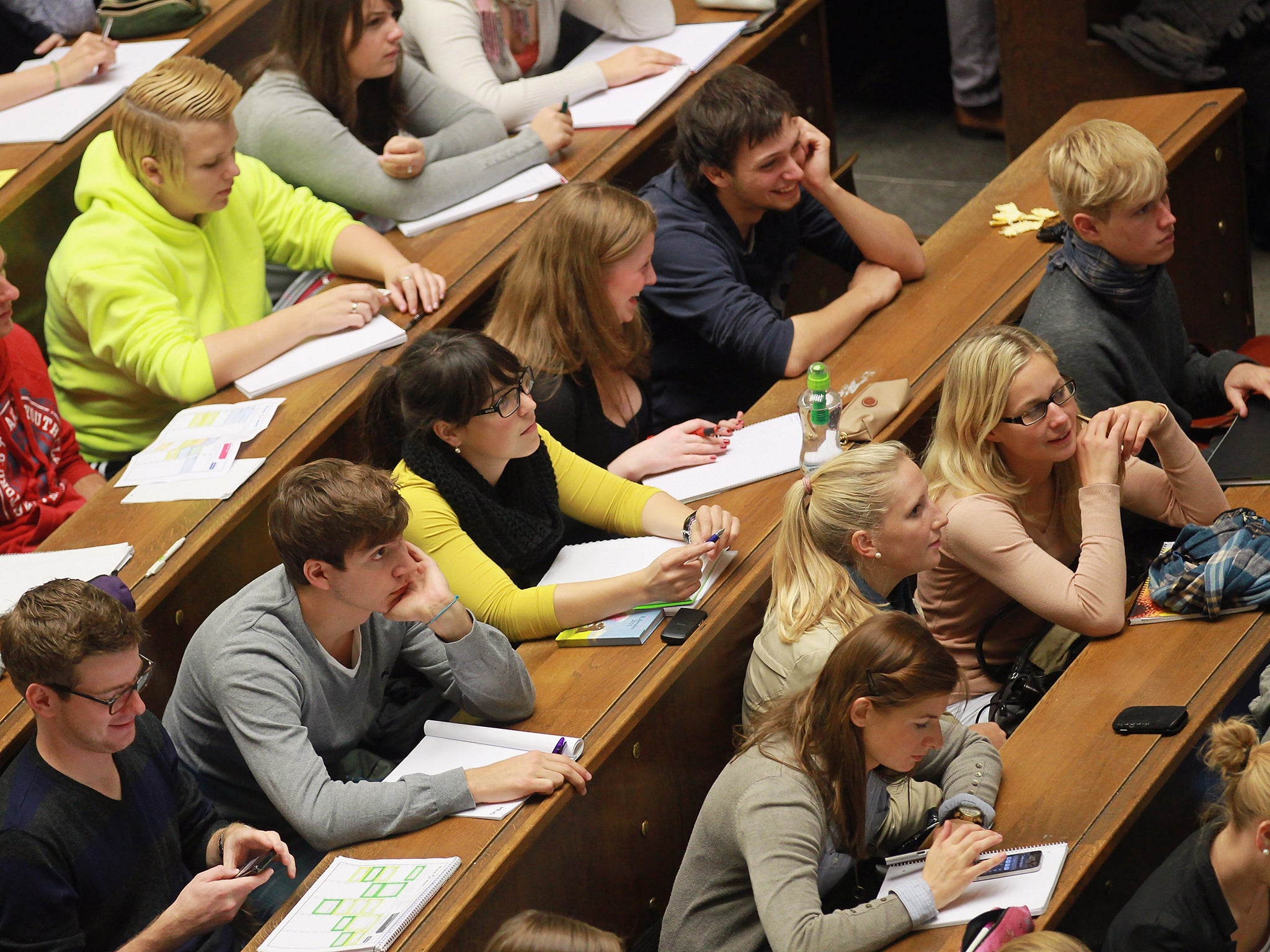Radicals despair as today's German students swap protest for wine-tasting
They were once a hotbed for militancy, but now universities across the country are seeing a new phenomenon labelled 'Generation Biedermeier'

They were once renowned for being among Europe's most militant rebels. In decades past, German students were in the vanguard of mass anti-nuclear protests and campaigned against parental conservatism, the establishment and the far right. They also fought pitched battles with the police. But not any more.
Studies conducted by psychologists suggest that today's average German student is more likely to spend his or her Saturday afternoon enjoying a couple of rounds on the golf course, tending an allotment or going wild-boar hunting in one of the country's many forests.
Cologne's Rheingold Institute for Market Research has dubbed the new student phenomenon "Generation Biedermeier", in reference to the post-1815 period in central Europe when hitherto bohemian artists and writers buckled under political repression to become bourgeois and apolitical.
"They are very grown up, controlled and sensible," says the institute's Stephan Grünewald of the new young generation. "A career and a decent income are high on the agenda. They want a little house with a garden or their own flat. It's a Biedermeier world," he told the Süddeutsche Zeitung.
Typical of the new young generation are students such as Tobias Edel, a 20 –year-old engineering student who spends his weekends hunting near his parent's home in Lüdenscheid. Germany's national hunting association membership has increased by 23,000 since 2004 and the vast majority of the newcomers are young people such as Mr Edel.
He spent ¤1,100 (£860) on a course to qualify for a hunting licence and has built a hunting lodge behind his parents' home. The only meetings he attends are of the hunting-horn blowing clubs he joined; political protest is not a priority. "There is nothing better than enjoying nature," he told Der Spiegel magazine.
Germany's students' association confirms the trend. Its spokesman, Stefan Grob, said that, at universities across the country, there has been a marked increase in numbers of students applying for evening courses on subjects such as table manners and wine tasting. "You could say there is a real run on these courses," he said.
Other sports that past generations would have regarded as the preserve of a despised capitalist elite have also become part of the modern student's leisure agenda. The Cologne association for students says that last year it was obliged to increase the number of places on its university golf course because of rapidly increasing demand
Der Spiegel noted last week that many student bars and clubs these days are furnished in a completely retro style and look like a "grandmother's living room".
The magazine asked why more and more young people wanted to own an allotment and go on regular walking tours. It said the penchant for knickerbockers, braces and bow ties meant that students' clothing looked like something out of the last century. "Where does this neo-petit bourgeois trend come from?" it asked.
Psychologists suggest that the main reason for such a sea-change in the attitudes and behaviour of students over the past decades is insecurity. "Fear of failure has become one of the most predominant feelings experienced by young people," Mr Grünewald said. "Society nowadays splits into two classes: there are winners and losers, superstars and social security recipients – good and bad," he added.
The fear of being considered among the losers was one of the fundamental reasons why young people sought out protection and reassurance in bourgeois pastimes and conservative values, the study's authors said.
"Punctuality, discipline, politeness or respect for elders no longer rate as petit bourgeois; they guarantee the security and reliability which is often felt to be lacking," Mr Grünewald said.
Subscribe to Independent Premium to bookmark this article
Want to bookmark your favourite articles and stories to read or reference later? Start your Independent Premium subscription today.

Join our commenting forum
Join thought-provoking conversations, follow other Independent readers and see their replies